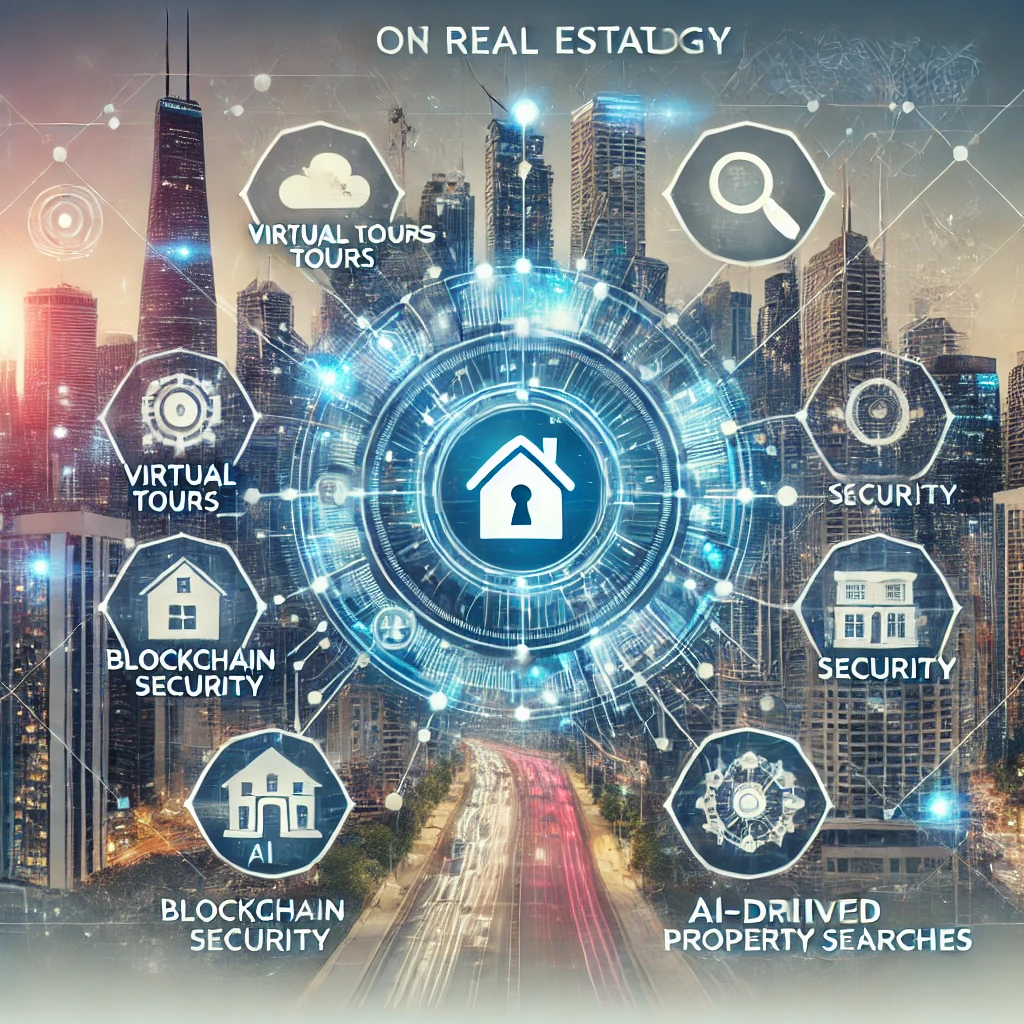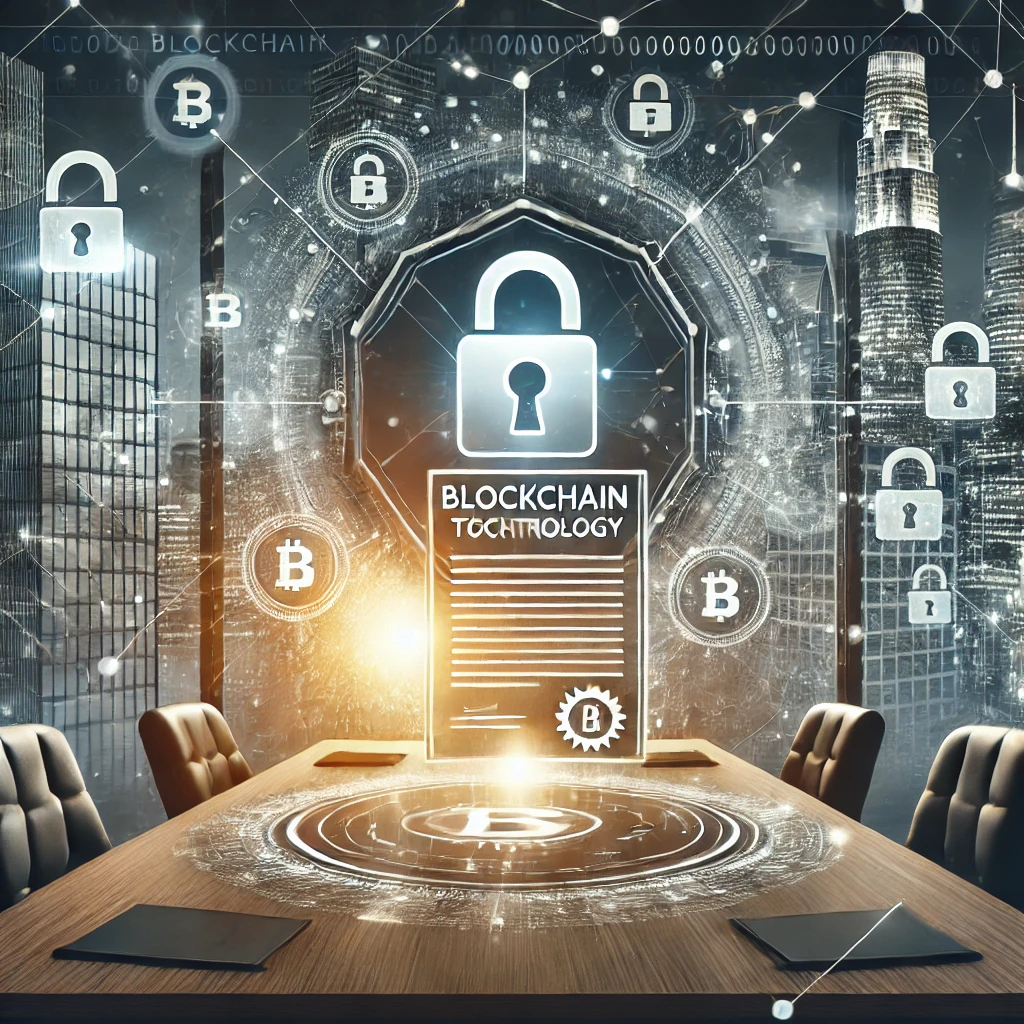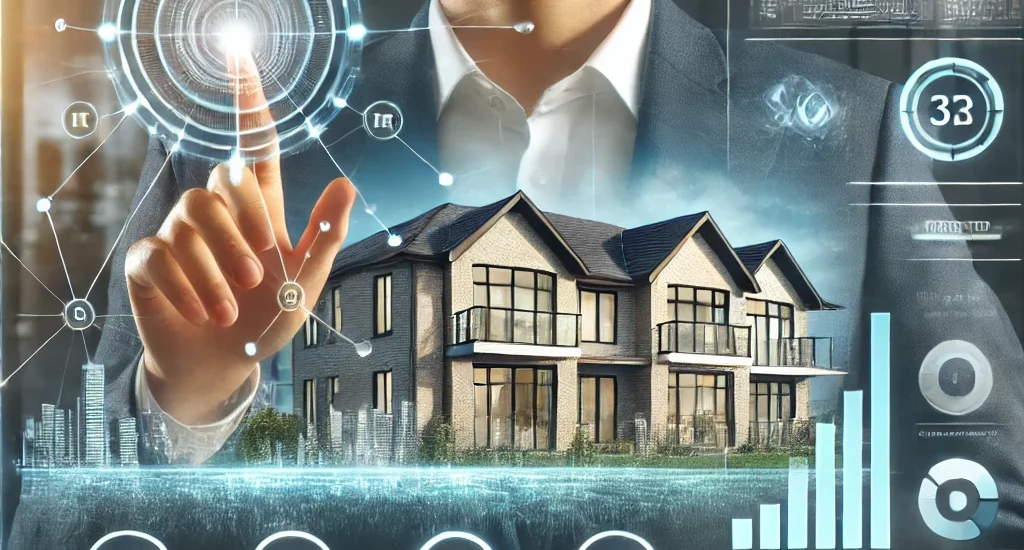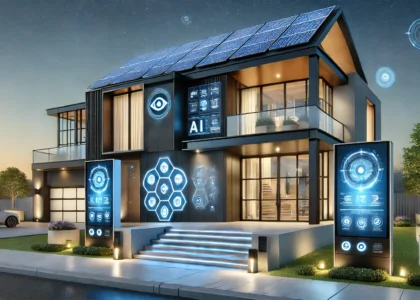Introduction
Technology is revolutionising the real estate industry, especially in the luxury property sector. From virtual tours that allow buyers to explore high-end homes from anywhere in the world to blockchain technology that ensures secure and transparent transactions, digital innovations are reshaping the way properties are bought and sold.
For luxury real estate buyers, these advancements mean more convenience, faster transactions, and access to exclusive properties worldwide. Meanwhile, sellers and real estate professionals are leveraging cutting-edge tools to market their listings more effectively and reach international investors. In this article, we explore how digital technology is streamlining property transactions and enhancing the buyer experience.
1. The Digital Transformation of Luxury Real Estate
Technology has dramatically changed the way luxury properties are marketed and sold. High-end property buyers no longer need to rely solely on in-person visits and printed brochures. Instead, they can browse international luxury properties online, access 3D virtual tours, and even consult AI-powered real estate experts.
How Technology is Reshaping the Luxury Real Estate Market
- Online Listings & Marketplaces: Platforms specialising in exclusive homes worldwide allow buyers to view properties remotely.
- AI-Driven Property Matching: Machine learning algorithms analyse preferences and suggest ideal properties.
- Digital Contracts & Transactions: Blockchain and smart contracts eliminate lengthy paperwork and reduce fraud risks.
The digital transformation benefits both buyers and sellers, making luxury real estate more accessible, efficient, and secure.
2. Virtual Tours and Augmented Reality (AR) in Luxury Real Estate
Virtual tours have become a game-changer in the high-end property market. Using 360-degree video technology, potential buyers can explore luxury homes for sale from the comfort of their own homes.
Benefits of Virtual Tours for Luxury Real Estate
- Global Reach: International buyers can view properties without travelling.
- Time Efficiency: Saves time for buyers and real estate agents by narrowing down options before physical visits.
- Immersive Experience: High-quality 3D visuals provide a realistic sense of space and design.
Augmented reality (AR) further enhances the experience by allowing users to customise interiors, visualise renovations, and explore premium real estate services virtually.

Case Study: Virtual Reality in Luxury Villas for Sale
Several luxury real estate firms now offer VR property tours, enabling buyers to “walk through” elite homes before making a purchase decision. This technology is particularly useful for international investors interested in global luxury estates.
3. Artificial Intelligence (AI) and Big Data in Property Transactions
AI is playing a crucial role in the luxury real estate market by making property searches more personalised and efficient.
How AI Enhances Property Transactions
- Smart Recommendations: AI analyses user behaviour to suggest high-end property listings that match their preferences.
- Market Predictions: Big data helps investors identify profitable luxury property investments.
- Automated Customer Support: AI-powered chatbots assist with inquiries, reducing the need for human agents.
Real estate professionals and luxury property brokers are using AI-driven tools to better understand market trends, price fluctuations, and buyer preferences.
4. Blockchain and Smart Contracts in Real Estate
Blockchain technology is revolutionising property transactions by enhancing security, reducing fraud, and streamlining paperwork.
The Role of Blockchain in Luxury Real Estate
- Secure Transactions: Eliminates intermediaries and ensures transparent deals.
- Smart Contracts: Automates legal agreements, reducing transaction time.
- Ownership Verification: Digital records prevent property disputes and fraud.
Blockchain is particularly beneficial for high-end real estate transactions, where large sums of money are involved and security is a top priority.
5. Online Property Marketplaces and High-End Property Listings
Digital platforms have transformed how luxury homes for sale are marketed and sold. Websites specialising in exclusive homes worldwide provide buyers with detailed property descriptions, high-resolution images, and virtual tours.
Benefits of Online Marketplaces for Luxury Real Estate
- Global Accessibility: Buyers can browse international luxury properties from anywhere.
- Increased Exposure: Sellers reach elite real estate networks beyond local markets.
- Convenience: 24/7 access to high-end property listings and premium real estate services.
These platforms connect buyers with luxury property consultants, streamlining the entire buying process.
6. The Role of Drones in Luxury Real Estate Marketing
Drones have revolutionised the way luxury properties are showcased. High-end real estate listings now feature stunning aerial footage that captures the full scale and beauty of luxury homes, villas, and estates.
How Drones Enhance Luxury Property Marketing
- Aerial Views: Provide breathtaking perspectives of large estates, beachfront properties, and city penthouses.
- Detailed Landscape Coverage: Showcases outdoor amenities like pools, gardens, golf courses, and private docks.
- Professional Cinematic Videos: Elevates the appeal of premium listings with high-quality visuals.
Future Trends in Drone Technology for Real Estate
- AI-Powered Drones: Will automate property tours, offering live-streamed aerial footage.
- Augmented Reality Integration: Buyers will be able to see interactive property information while viewing drone footage.
Luxury real estate brokers now use drones to create compelling marketing content that attracts high-net-worth buyers worldwide.
7. The Impact of 5G on Real Estate Transactions
The rollout of 5G technology is set to transform the real estate industry by improving connectivity and enhancing virtual property experiences.
How 5G Benefits Luxury Real Estate
- Faster Load Times: Online property marketplaces will operate more smoothly.
- Seamless Virtual Tours: High-definition video streaming without lag or buffering.
- Remote Transactions: Buyers can finalise property deals from anywhere in the world.
As more cities adopt 5G, international luxury property transactions will become even more efficient, with real-time access to high-end property listings and advisors.
8. Smart Homes and IoT in Luxury Properties
The integration of smart home technology and the Internet of Things (IoT) is redefining luxury living. High-end homes are now equipped with automated systems that enhance convenience, security, and energy efficiency.
Key Smart Home Features in Luxury Real Estate
- AI-Powered Home Assistants: Voice-controlled lighting, climate, and security systems.
- Advanced Security: Biometric access, facial recognition, and smart surveillance.
- Energy Efficiency: Automated heating, cooling, and lighting for sustainability.
Luxury property specialists now highlight smart home features as a key selling point, making tech-driven homes a prime choice for discerning buyers.
9. The Growing Influence of Social Media on Real Estate Sales
Social media platforms like Instagram, TikTok, and YouTube have become powerful tools for marketing luxury real estate. Real estate influencers and brokers use these platforms to showcase premium properties to a global audience.
How Social Media is Shaping Luxury Property Sales
- Engaging Video Tours: Short-form videos attract high-net-worth buyers.
- Live Virtual Showings: Real-time property walk-throughs increase buyer interest.
- Targeted Advertising: AI-driven social media ads reach potential buyers based on their interests.
Luxury property brokers who embrace social media gain a competitive edge in the upscale property market.

10. Challenges and Risks of Digital Transformation in Real Estate
Despite the advantages, the adoption of technology in real estate comes with challenges.
Privacy and Security Concerns
- Data Protection: Online transactions require robust cybersecurity measures.
- Blockchain Adoption Barriers: Some markets lack regulatory frameworks.
The Risk of Over-Reliance on Technology
- Digital Fatigue: Buyers still value personal interactions with real estate professionals.
- AI Decision Bias: Automated recommendations may not always capture individual preferences.
Luxury property advisors must balance technology with personalised service to maintain trust and authenticity in high-end real estate transactions.
Conclusion
Technology is redefining the luxury real estate industry, making property transactions faster, safer, and more accessible. From virtual tours and blockchain to AI-driven property searches and smart homes, digital innovations are enhancing the buyer experience.
As the upscale property market evolves, real estate professionals must embrace these advancements while ensuring data security and personalisation remain a priority. The future of luxury real estate lies in a seamless blend of technology and human expertise.
FAQs
1. How do virtual tours benefit luxury property buyers?
Virtual tours allow buyers to explore high-end properties remotely, saving time and offering a realistic viewing experience before committing to an in-person visit.
2. What role does blockchain play in real estate transactions?
Blockchain enhances security, reduces fraud, and streamlines transactions through smart contracts, ensuring transparent and tamper-proof property deals.
3. How does AI improve high-end property searches?
AI analyses buyer preferences and market trends to recommend luxury properties that match specific requirements, improving efficiency and accuracy.
4. Why is smart home technology important for luxury real estate?
Smart home features enhance convenience, security, and energy efficiency, making properties more desirable and increasing their value.
5. What are the biggest challenges in adopting technology in real estate?
Privacy concerns, cybersecurity risks, and the need for regulatory adaptation pose challenges, but strategic implementation can mitigate these risks.





